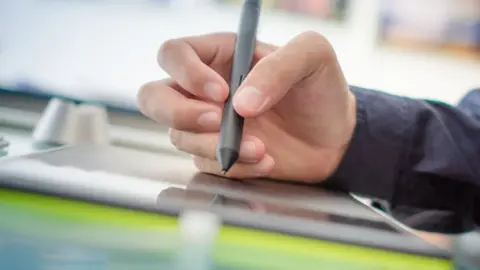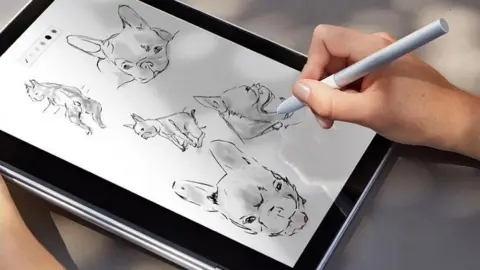Google backs 'universal stylus' campaign
 Getty Images
Getty ImagesGoogle has backed an effort to standardise touch-screen styluses so they can be used on many devices.
The Universal Stylus Initiative (USI) was launched, in 2015, to encourage companies to produce styluses that work on rivals' products.
Dell, Intel, Lenovo, LG and graphics tablet-maker Wacom have all backed the project. However, Apple, Microsoft and Samsung have not.
One expert suggested the big brands would keep their proprietary pens.
Styluses designed to work with modern touch-screen devices and graphics tablets usually contain sensors to detect pressure, movement and orientation of the pen.
However, many device-makers sell a proprietary stylus that works only with their own hardware.
 Google
GoogleThe USI said it wanted to advance the development of an "open active stylus standard".
It hopes standardised styluses will:
- work across any compatible touch-screen device or graphics tablet
- store a user's settings such as ink colour and stroke width, so that the pen works the same across devices
- be able to change radio frequency instantly if interference from other devices is detected, so that the pen always writes smoothly
"It makes sense, but I think they are late to the game," said Stuart Miles, founder of the reviews site Pocket-lint.
"The big brands don't need to push an open standard, they have their own. Microsoft has Microsoft Ink, Apple has the Apple Pencil. On Android, Samsung is the market leader and has its S-Pen.
"I can't see why they would adopt an open standard."
Google was one of six companies to join the USI on Tuesday.
3M Touch Systems, Lattice Semiconductor, Maxeye Smart Technologies, MyScript and Tactual Labs also signed up.
